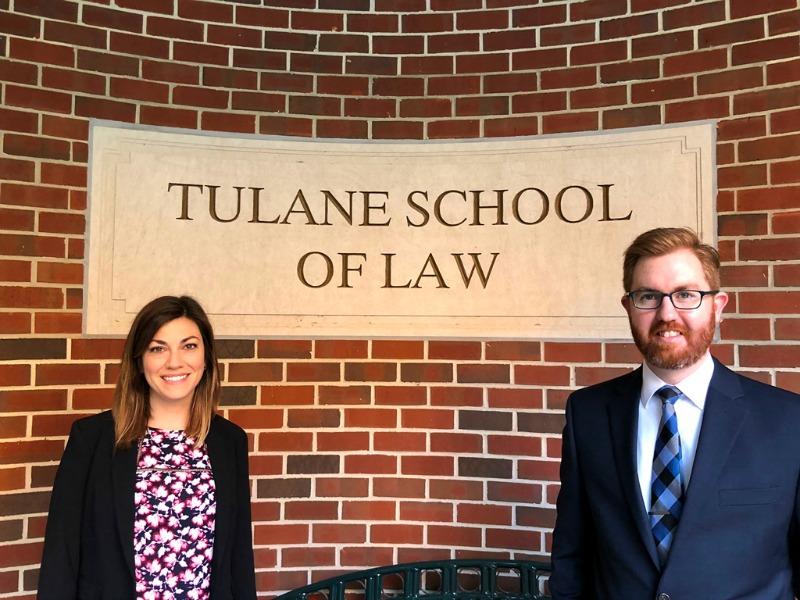Tulane maritime law students get coaching from CMA CGM Leaders
Maritime law students in law Prof. Raymond Waid’s Cargo class are about to enter tough negotiations on how to move goods from one country to another by sea.
For the second time in as many years, students in Waid’s class on April 11 will enter mock negotiations with a bonus not afforded them in real life: Each team will get a coach from CMA CGM, one of the biggest shipping companies in the world.
The exercise is one way Tulane Law prepares students to apply concepts learned in class to real-world scenarios, and the help of a corporate partner makes it all the more valuable, Waid said.
“Exercises like this cargo contract negotiation are important not just for skill development, they are also a useful pedagogical method,” said Waid (L’07), a partner with the New Orleans firm of Liskow & Lewis and a Tulane adjunct professor of law. “By applying the cargo laws that they learned in the classroom to a real-world exercise, my hope is that they better understand the concepts that we covered this semester.”
The negotiation will bring together Waid’s class of 15 students and two coaches from CMA CGM America in Norfolk, Virginia: Kristi Thompson, Senior Counsel, and Robert Corvin, Manager, Cargo Claims and Risk Management.
Waid said his class includes international students from Greece, India, Panama, and China. Some of them plan to work abroad, so exposure to global maritime rules is imperative.
“Today’s ultra-competitive legal market demands that new lawyers hit the deck running,” said Waid. “They need to have the skills that it takes to stand out in their law firms or companies. I feel we have the responsibility to ensure that our students are prepared not just to survive in that market, but thrive.”
For the negotiation, the class will split into two teams with appointed negotiators, one side representing the cargo company, and the other, the ship owner. Corvin and Thompson will coach one side each.
For CMA CGM, which has 29,000 employees in more than 160 countries, training future lawyers with international maritime skills is important.
“CMA CGM has been able to innovate and shape the industry because of its talented people,” Corvin said. “Partnering with Tulane Law School for these mock negotiations is an exciting opportunity to give back to the maritime community, and we want the students to gain from an interaction that models the real work they will encounter in their careers.”
One of Waid’s first priorities in taking over the cargo class two years ago was to incorporate more practical lessons that would aid the students in their transition to practicing law.
“I brought in speakers to address the students, and we’ve done presentations and tours, but I was looking for something more dynamic,” Waid said.
When he posed the question to his class the first year, a student suggested the mock challenge.
Waid reached out to CMA CGM and Tulane alumna Draughn Whitehead Arbona (L’03), the company’s Deputy General Counsel, North America, and asked if there might be an opportunity to partner in the mock negotiation.
“CMA CGM is a leader in the maritime industry, and this opportunity to engage with future maritime lawyers seemed like a natural fit,” Waid said.

